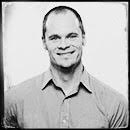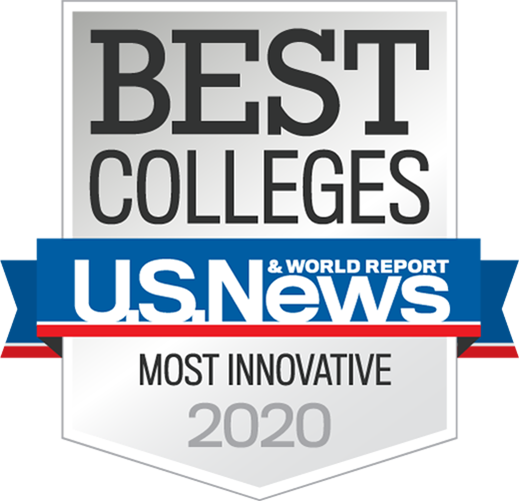How I Became an Instructional Designer: Pat
In the last few years I’ve noticed an increase in the number of questions I’ve been asked by visitors to Arizona State University about the Instructional Designers on our team, Instructional Design & New Media, in EdPlus. People want to know about their backgrounds and academic credentials, how we find them, how we hire them, how they work as a team, how they manage their workloads, and more. It occurred to me as I answered these questions that there is a lot I don’t know about how the Instructional Designers in our group arrived at their jobs. I decided to interview some of the team to find out more about the paths they’ve taken to get here. Along the way, I was fortunate enough to have access to some of our colleagues at King’s College, London, with whom we work as part of the PLuS Alliance. In the end, I was able to interview six Instructional Designers from ASU and three from King’s College. My goal is to include Instructional Designers from our other PLuS Alliance partner, University of New South Wales, in the future.
The following includes highlights, pivotal life moments, and milestones that came out in the conversations. One post in the series will be published here at the TeachOnline website each week for nine weeks.
Pat (30s) – Phoenix – ASU
I was born in Fort Wayne, Indiana, and grew up in a nearby town called Auburn.
My parents divorced when I started school, and they never explained anything about the value of a good education. To me, school felt like a daycare, and I thought, why am I going to do all this stuff? This doesn’t make sense to me. I don’t value it. Education had no value at home.
On m y own, I created this kind of schedule to study, and I had my routine. I earned decent grades. I remember that in high school, they put me in the lowest math class available, with kids who didn’t care. I thought, “No, this is not how I’m going to learn algebra. I’m not going to take pre-algebra. I’m going to take regular algebra!” I did fine; I earned a B, but I worked hard at it. For me, it was important because finishing that class made me think that maybe I am smart enough. That became a theme throughout my schooling — am I smart enough to do this?
y own, I created this kind of schedule to study, and I had my routine. I earned decent grades. I remember that in high school, they put me in the lowest math class available, with kids who didn’t care. I thought, “No, this is not how I’m going to learn algebra. I’m not going to take pre-algebra. I’m going to take regular algebra!” I did fine; I earned a B, but I worked hard at it. For me, it was important because finishing that class made me think that maybe I am smart enough. That became a theme throughout my schooling — am I smart enough to do this?
I like learning, and I like doing well. I don’t know where this drive came from, but it was there. I felt this sense to achieve, this sense that I want to become more than my circumstances. Coming out of a lower-class upbringing, I absorbed the poverty mentality. There’s a value difference as if I was of a lower value. I decided to fight that stereotype; I didn’t want to be considered a dumb, kind of backwoods hilljack, an uneducated sort of hillbilly.
I was trying things that I thought would help me escape that status. I chose harder classes and asked a lot of questions. The teacher would ask, “What do you think about this?” I would always raise my hand and try to answer. I was wrong a lot, but I learned a great deal through that trial and error. Some of the other kids thought I just talked all the time and that my answers were often wrong. What they failed to grasp, though, was that I was also learning.
During high school, a friend of mine died unexpectedly. It was probably one of the most significant events in my entire life in terms of altering the trajectory that I was on, the pace that I was going, the inertia around me in terms of my family dynamic. That was the one thing that just literally peeled me off to interact with people I would have never have talked with, and it led me to think about doing things that I would have never done.
I became involved with a church and in so doing, I joined a completely new circle of people. While I had always had a very close family, through this new church group, I was having dinner with people who were circuit court judges, lawyers, business owners, and teachers. We weren’t having simple conversations, but we were having deep life discussion.
College was the place where I cleaved away from the trajectory my family was on. I thought, no, this stops here. I’m doing something different. Of course, my family was proud of the fact that I was doing this — the fact that I was going to college.
Huntington College, which is now Huntington University, was a liberal arts school, so I had a wide breadth of subjects to choose from: applied arts. philosophy, biology, chemistry, physics. I focused on ministry — there was a focus on Bible philosophy and then the educational side of ministry. At Huntington, either one would be a teacher or a preacher. So, I was the preacher, and my wife was the teacher.
We found this really interesting population of people who were church members. They were seen in their churches, youth groups, as leaders, yet they were missed, skipped over. No one talked to them. No one developed them. My wife and I decided to open our house from 8 to 11 on Wednesday nights. We had some volunteers, but we didn’t do a show or make announcements, we just talked. Whatever was on our guests’ minds became the agenda. We lived in a small, 1,100-foot square house, and we’d have 30 people inside, hanging out. It was crazy, but it was really cool.
There came a time when my wife and I wanted to go overseas and do this work, and Western Europe was our target. I did a Google search to look for jobs and this organization came up and I contacted them. We flew over for an interview and spent some time at their annual convention. They get together, listen to speakers, and drink and smoke together. It was amazing. These people were not trying to make life simpler but to appreciate the complexity. And the food was amazing. I knew right then that I wanted to be a part of this; I wanted to help produce these sorts of experiences.
We moved to southern France, but two weeks into our stay, we realized we’d made a big mistake. We had sold our house and our possessions. Honestly, I was thinking about retiring doing this sort of work. Two weeks into it, I thought, nope, this is just not going to work. It had taken ten years to get to this place, and I just completely squandered it. It was a real tipping point for us, because now I had spent my entire career getting to this point only to realize that, in order for me to move on, I was going to have to put in triple or even quadruple the amount of effort. I knew I did not have the energy, nor did I care to expend so much energy. I needed to do something else.
I didn’t want to have to wear the hat of minister. I didn’t want that affecting every relationship I had, and I didn’t want my job success to be so tied into my social life. I didn’t want to have to pressure people to believe a certain way. But, I found, I did like to analyze, and I still enjoyed learning. After some research and many discussions, my wife found the learning science program at Indiana University.
The program was amazing, and it gave me hope again. I went into it thinking I still want to help people and learning in such a way that I could go to any organization, any company, any demographic of people and people would have something valuable to learn.
I wasn’t necessarily excited about this job itself, but the HR person at my previous job knew my situation, and she encouraged me to apply because it was a really good job. With a PhD, I had wanted to be able to think about how to recreate whole systems of thought, but this job seemed simpler. It was way better than I had imagined, and I’m sure much of it can be attributed to the culture here. I’ve worked at other organizations where there wasn’t a strong support for the people, but at EdPlus, we have the technology, the pay is good, and the support is outstanding. Service is everything, especially how it’s structured here, where the faculty have the say. These are their courses. We serve them and provide that service with empathy — empathy for the students, empathy for what the faculty will go through. If I can help make your course look clean and great, and that gives you more time to do the things that you love with your students, then I’ve done my part.
I remember asking a friend from the University of Utah if he would be willing to share one piece of advice that he found valuable. And he said, “It’s this question: would you be willing to? It’s an invitation.” Even if I need our faculty to do something, I’m not demanding. I come from a place of service. I say, would you be willing to try this? Would you be willing to consider this? Would you be willing to do that? It shapes how I communicate with faculty.
Marc: What one piece of advice would you give to your 18-year-old self?
Keep doing what you’re doing. All the experiences I’ve had — I wish I had more resources in terms of mentors, but there’s a part of me that just needed to learn on my own. I don’t regret anything I did, and I’m excited about what I’ve done. There are times in life that are extremely frustrating, and I wish I had had more support. So, I just say go for it. Go for it. Keep taking risks. It’s an adventure. Keep exploring new places.
Additional editing: Debra Sims



